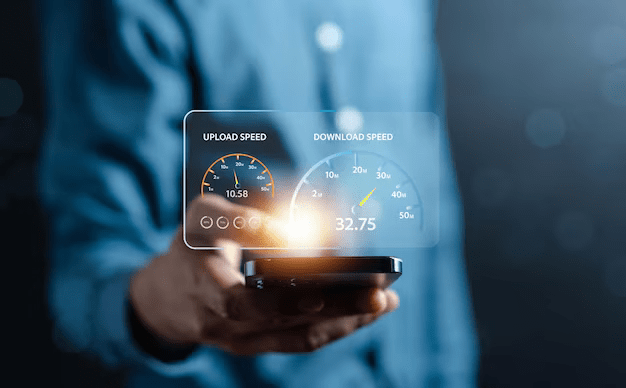In today’s fast-paced digital world, website speed is more than just a technical concern—it’s a critical factor that can make or break your online success. Whether you’re running an e-commerce store, a blog, or a corporate website, ensuring that your site loads quickly is essential. This article will explore why website speed matters and provide actionable tips to boost your site’s performance.
First Impressions Count: Website Speed and User Experience
When a visitor lands on your website, you have only a few seconds to capture their attention. A fast-loading website sets a positive tone, creating a great first impression. On the other hand, a slow site can frustrate users, leading them to leave and seek out faster alternatives.
Key Insight: Studies show that 47% of users expect a web page to load in two seconds or less. Improving your site speed can reduce bounce rates and keep visitors engaged.

The Impact of Website Speed on SEO Rankings
Google and other search engines prioritize fast-loading websites in their search results. This means that if your site is slow, it could be pushed down in the rankings, leading to less organic traffic. Google has made it clear that speed is a ranking factor, especially for mobile searches.
Actionable Tip: Use tools like Google PageSpeed Insights to assess your site’s performance and make necessary adjustments. Compress images, minimize code, and leverage browser caching to enhance speed.
Boosting Conversion Rates with Faster Load Times
A faster website directly correlates with higher conversion rates. Users are more likely to complete a purchase or sign up for a service if the process is quick and seamless. For e-commerce websites, a one-second delay in load time can result in a 7% reduction in conversions.
Example: Walmart discovered that improving their page load time by one second increased conversions by 2%. By optimizing your site speed, you can see a significant boost in revenue.
The Role of Website Speed in Digital Marketing Strategies
Fast-loading websites are crucial for effective digital marketing. Whether you’re engaging in social media marketing, PPC campaigns, or email marketing, a slow site can hinder your efforts and waste your budget.
Pro Tip: Ensure your landing pages load quickly to maximize the return on investment (ROI) from your marketing campaigns. Use a CDN (Content Delivery Network) to speed up content delivery and reduce latency.
How to Improve Your Website Speed: Practical Tips
Improving website speed doesn’t have to be complicated. Here are some straightforward tips to get you started:
Optimize Images: Compress images using tools like TinyPNG without sacrificing quality. Large images are often the biggest culprits of slow loading times.
Minify Code: Reduce the size of your HTML, CSS, and JavaScript files by removing unnecessary characters. Tools like UglifyJS and CSSNano can help with this process.
Enable Browser Caching: Allow browsers to store some data locally, so returning visitors don’t have to reload the entire site.
Use a CDN: A CDN stores copies of your site’s content across multiple servers worldwide, reducing load times for users by serving content from the server closest to them.
Reduce Server Response Time: Choose a reliable hosting provider and consider upgrading your plan if your current one is slow.
Lazy Loading: Implement lazy loading for images and videos so they only load when they are about to come into the user’s view.
Final Tip: Regularly monitor your site’s speed using tools like GTmetrix or Pingdom and address any issues that arise to maintain optimal performance.
Conclusion: Every Millisecond Counts
In the competitive online landscape, every millisecond counts. A fast website not only improves user experience but also enhances SEO rankings, boosts conversions, and supports your digital marketing efforts. By following the tips outlined in this article, you can ensure that your website is fast, responsive, and ready to meet the demands of today’s internet users.
